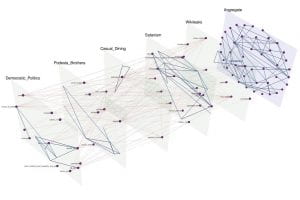 In 2014, Stephen Hawking gravely warned against creating Artificial Intelligence (A.I.) devices that could match or surpass human abilities. Hawking’s fears are not unique or new – but are they warranted? Could A.I. ever really replace a living, breathing person?
In 2014, Stephen Hawking gravely warned against creating Artificial Intelligence (A.I.) devices that could match or surpass human abilities. Hawking’s fears are not unique or new – but are they warranted? Could A.I. ever really replace a living, breathing person?
The short answer is “maybe.” As technology advances, use of A.I. will likely continue to expand across all industries. In classrooms, bots can be used to grade papers, thus potentially freeing up instructors to spend more time with students. Outside of the classroom, students might try to use a bot to write a paper for them. A.I. even beat contestants on Jeopardy!
Personally, it is a little terrifying to consider all of the different ways that A.I. might take over human thought processes. At what point will our world start to look like a real life version of Ex Machina or i,Robot?
The reality is that A.I. is still relatively young in the grand scheme of technological advances. While it is true that A.I. has advanced to mimic human thought processes such as those described above, there are massive limitations in what A.I. can do.
In 2019, an A.I. device, Project Debater, went head-to-head with a human economic consultant to debate whether or not preschools should be subsidized by the public. While Project Debater had all of the same facts and figures as its human opponent, the machine was not able to argue successfully. 
A.I. devices mirror humans when it comes to logic and facts. But when it comes to abstract concepts and rhetorical persuasion, A.I. can’t compete. And according to some experts, it never will. Abstract ideas are not easily replicable and often don’t conform to any set patterns or rules, making them nearly impossible to create in the form of a machine. Similarly, the art of rhetorical persuasion requires a certain emotion to be conveyed from speaker or writer to the intended audience.
So, put the fears aside. While A.I. will continue to advance at the simple stuff, it will not be able to replace the core of what makes humans human.








